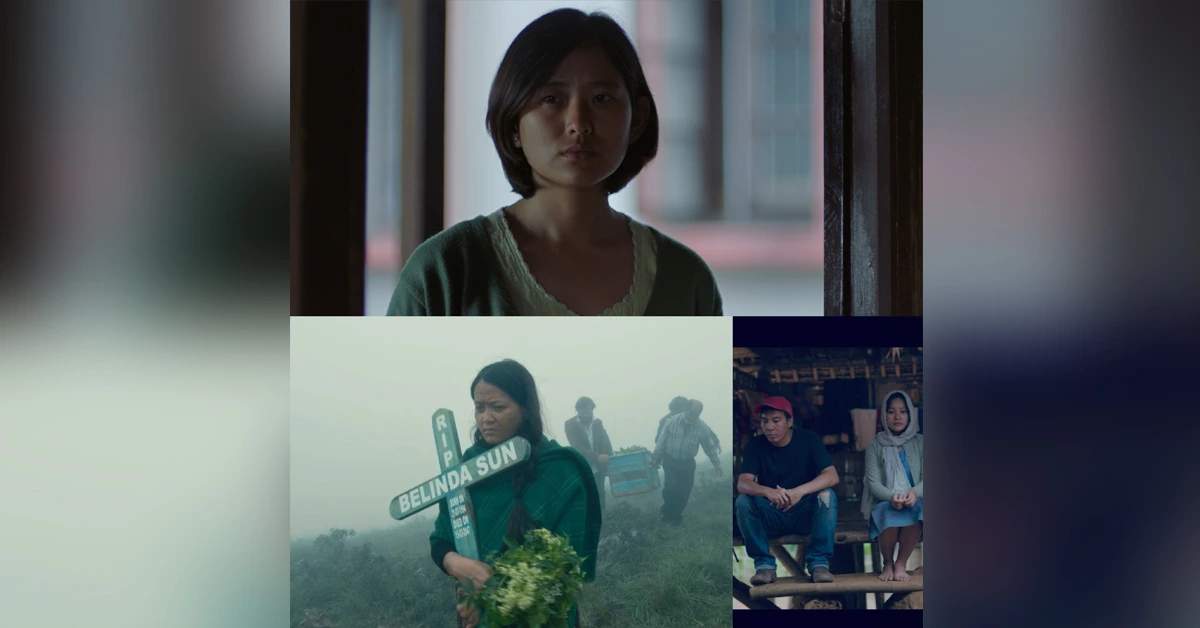
At this year's Kolkata International Film Festival, three films, each from a different corner of the Northeast, mapped a landscape of vanishing worlds, fragile communities, and the quiet insistence of human presence
In a festival circuit often dominated by metropolitan imaginations, something rare happened at the 31st Kolkata International Film Festival: three films from Northeast India stood shoulder to shoulder at the top of the awards list.
The Lost Path from Assam received the Special Jury Award, The Elysian Field from Meghalaya earned Best Director, and Shape Of Momo from Sikkim took home the award for Best Film.
What their sweep signals is not a sudden discovery, but an overdue recognition. It is a moment of quiet pride in which the region’s diversity became visible not as a category but as a set of distinct artistic sensibilities.
Pradip Kurbah's The Elysian Field, set in the Khasi Hills in 2047, unfolds with a pared-down elegance, featuring a dying village, a handful of residents, and a landscape shaped as much by absence as presence.
From its opening, with villagers mourning Livingstone's wife in silence, the film establishes a world where emotion accumulates rather than erupts. There are no antagonists, no narrative detonations. Instead, six remaining villagers move through their days with the slow fidelity of people who have chosen to stay even as the rest of the world leaves. Their stubborn presence becomes a quiet defiance against erasure.
Where Kurbah looks at a world thinning out, Tribeny Rai's Shape Of Momo turns inward, tracing the lives of three generations of women in rural Sikkim.
Bishnu, newly returned from Delhi, becomes the film's restless centre. She is idealistic, intrusive, and unwilling to tolerate the small injustices that hold her family together. Her mother maintains a delicate balance with village norms, her pregnant sister navigates marital strain with a weary resilience, and her grandmother clings to an imagined future in Dubai with her son. The film moves through ordinary gestures, and yet beneath these surfaces lies a sharp critique of patriarchy.
Meanwhile, Khanjan Kishore Nath's The Lost Path steps into a different terrain. According to the film’s synopsis, Longsing is tasked by a local militant outfit to recruit villagers, a duty that gradually corrodes his sense of self. What begins as obedience turns into fracture when he refuses to kill a schoolteacher who openly opposes the group, setting off the first tremor of a doomed defection.
Taken together, these films do not announce a movement or outline a single direction for Northeast Indian cinema.
Instead, they expand its map quietly, insistently, and through a set of voices that refuse to echo one another. Their recognition at the festival suggests something modest yet meaningful.
The region’s most compelling work is emerging from filmmakers attentive to the worlds immediately around them.
And this attention, whether to a fading village, a tense household, or a man walking away from violence, is finally being met with attention in return.
ALSO READ | Why We Must Talk About Pradip Kurbah's 'The Elysian Field'
Dipankar Sarkar is a film critic who contributes to different publications- both national and international. He is a Research Fellowship from the NFAI, Pune, India, and was one of the panelists for the selection of world cinema at the 27th International Film Festival of Kerala in 2022.